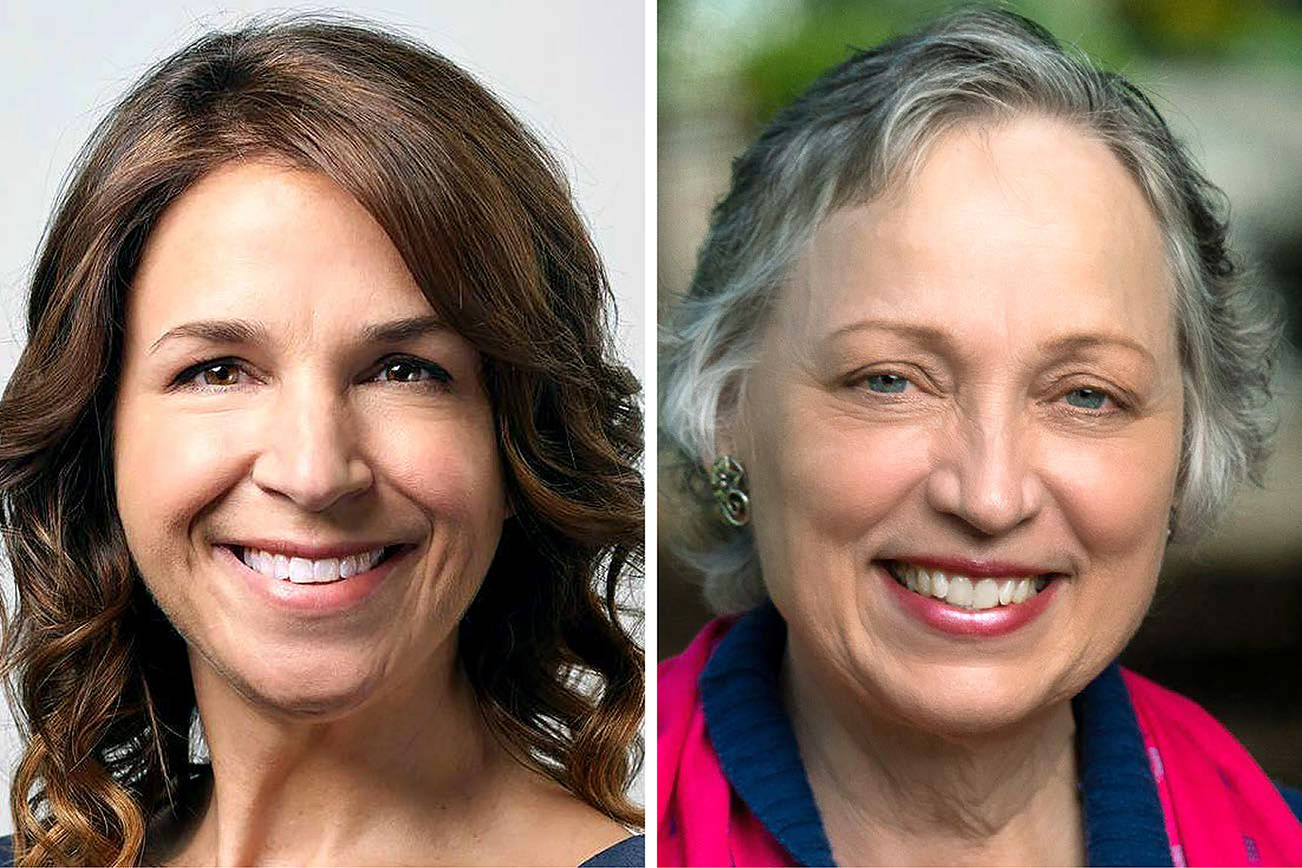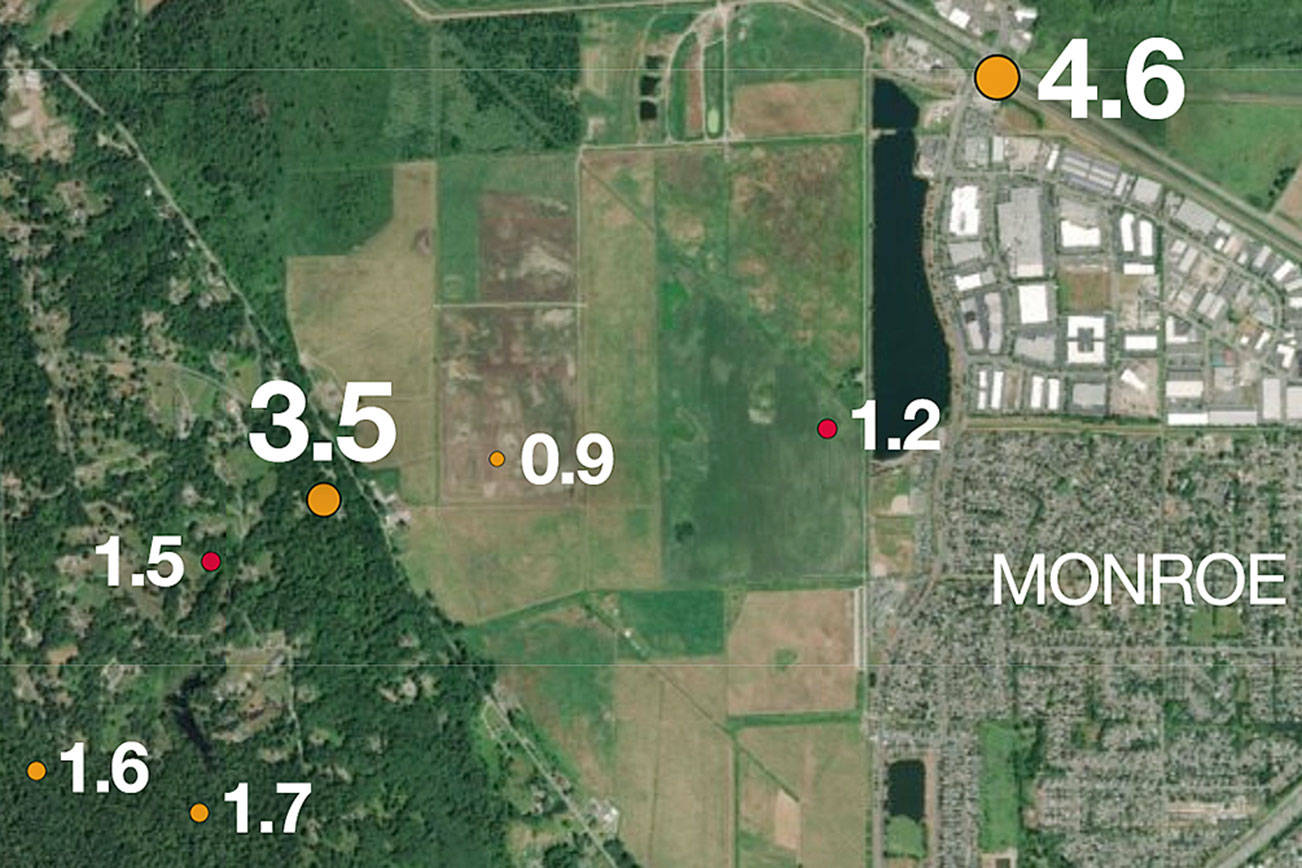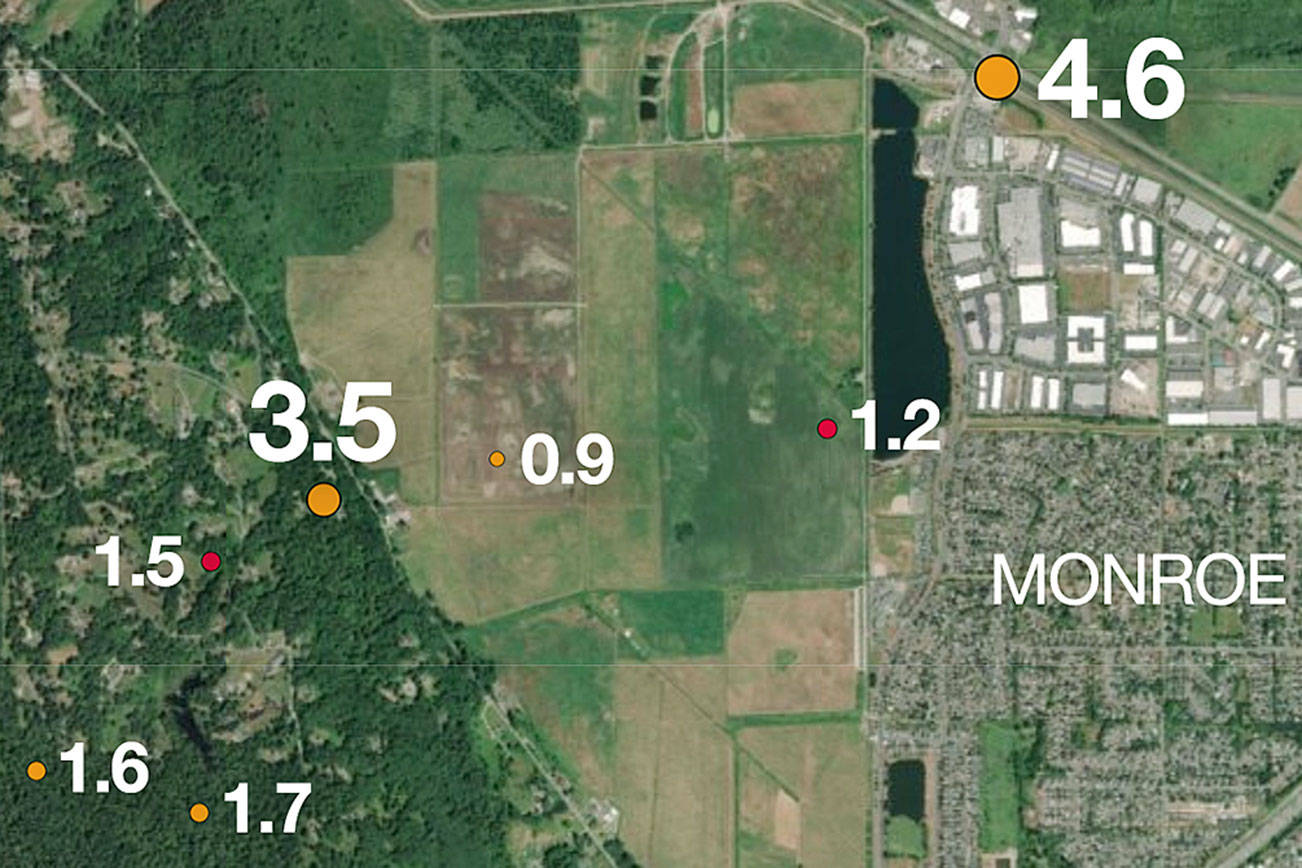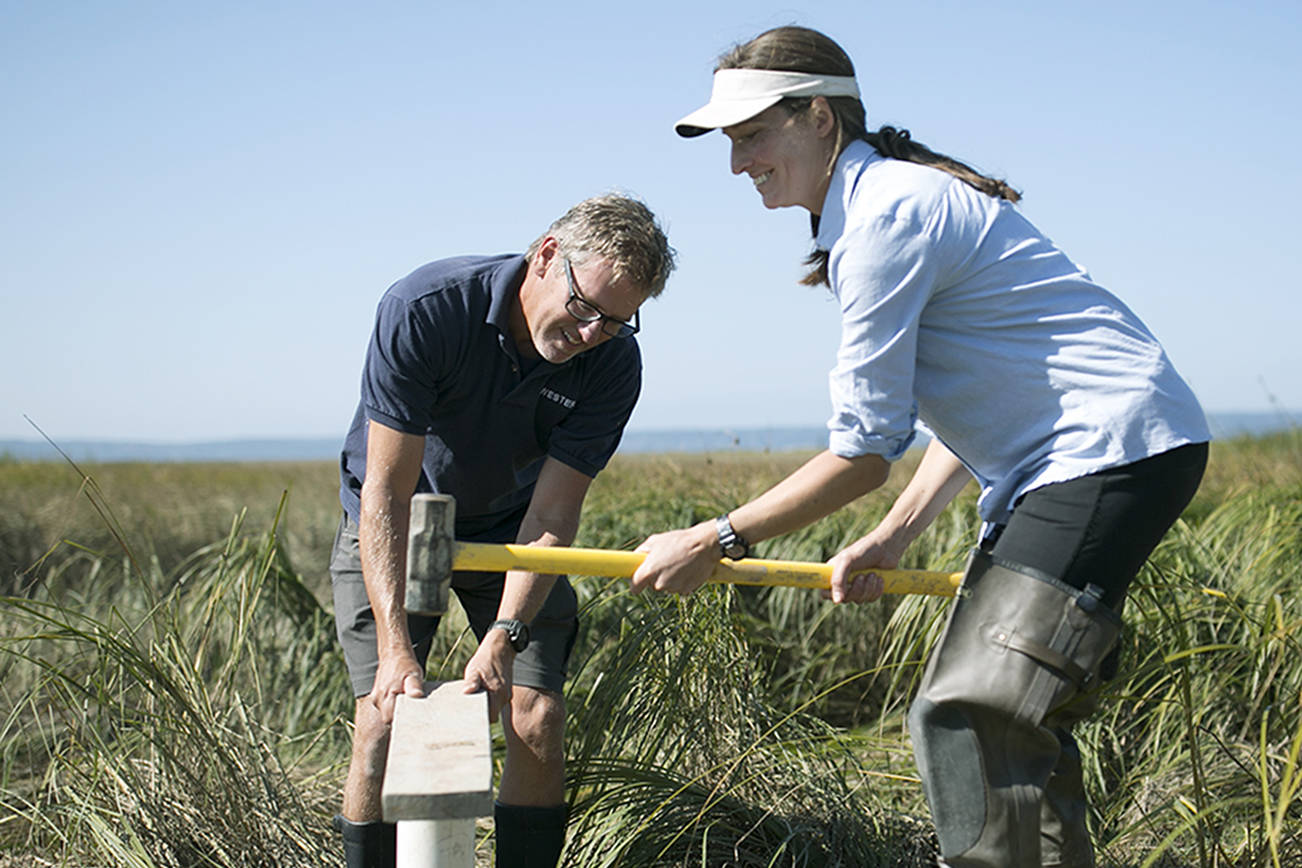EVERETT — Wildfire is the focus in the contest to be in charge of preventing them and putting them out.
State Commissioner of Public Lands Hilary Franz, a Democrat, and former fisheries biologist Sue Kuehl Pederson, a Republican, are dueling in the Nov. 3 election for a four-year term as leader of the state Department of Natural Resources.
Among other things, DNR is the state’s largest on-call fire department, responding to wildfires on 13 million acres of private, state and tribal forest land. That role catapulted Franz into the spotlight this summer as the agency responded to widespread, devastating wildfires throughout Washington.
Over 800,000 acres burned, according to department figures, including the 2,600-acre Downey Creek fire in Snohomish County.
The lands commissioner also oversees management of more than 5 million acres of forest, agricultural, range, aquatic and commercial land.
Throughout her four-year term, Franz says, she has diversified the state’s portfolio of land and leases, including those for wind and solar generation, and also expanded broadband internet service in under-served rural areas.
Kuehl Pederson said Franz hasn’t acted quickly enough to prevent wildfires. She also questions climate change’s role in causing a longer, hotter fire season — and she’d like to see DNR do less wildfire prevention work on federal and tribal-owned forest land, instead turning that responsibility over to private industry. She’s a proponent of increased logging.
Franz won the commissioner position in 2016. She’s spent her term working to reverse a “forest health crisis,” she said in an interview with The Daily Herald.
About 2.7 million acres of forest in Washington are dead or dying, she said — and most of that is federal land. Over 1.25 million acres need to be thinned over the next 20 years to remove unnecessary fuel for wildfires.
“When we have too dense of forest and too weak of trees, fire gets so hot that it burns even the healthy trees,” Franz said.
From 2005 to 2012, DNR thinned just 30,000 acres of forest. Moving forward, Franz aims to thin 70,000 acres per year. Franz said she’d also like to increase prescribed burns.
In the 2019 legislative session, Franz won funding from lawmakers to expand resources for firefighting, forest health and fire prevention.
Despite a projected $4 billion shortfall in the next state budget due to COVID-19, Franz said she will continue to push for increased wildfire-prevention funding if she is re-elected.
She’ll also ask for more resources at the state and local levels to aid small and volunteer fire departments that rely on overtaxed federal firefighters. Local departments are often on the front lines of wildfires before federal aid can arrive.
By putting the money into forest health up front, Franz said, forest treatments can decrease wildfire risk while creating jobs and sending wood to mills.
Before her term as commissioner, Franz served on the Bainbridge Island City Council, the Puget Sound Transportation Futures Task Force, the Puget Sound Regional Council Economic Development Board and the Puget Sound Salmon Recovery Council.
She also worked as an attorney in environmental and land-use law. For five years, she served as the executive director of Futurewise, an environmental and growth-management advocacy group.
Franz, 50, lives in Seattle.
In a live-streamed debate hosted by the League of Women Voters last week, Kuehl Pederson said the DNR’s management of wildfires pushed her out of retirement and into the race for commissioner.
“My opponent has had four years,” Kuehl Pederson said. “She keeps touting the 10-year, 20-year plans, but you know, we just can’t stick with that schedule.”
Kuehl Pederson suggested using plows to create fire breaks “like the pioneers did” to stop wildfires from spreading into towns and homes. The same technique could work in forests, breaking the trees into segments, she said in an interview with The Herald.
“That’s been my main push,” she said. “Something quick and easy.”
Rather than request federal funding for fire prevention and forest health, Kuehl Pederson said, more responsibility for firefighting should be given to local ranchers and homeowners.
“I want to see the private sector involved in protecting their own lands,” she said.
Kuehl Pederson said she’s in favor of limited government and doesn’t want to see DNR become a bigger firefighting force.
She also said she’d like to see DNR roll back regulations on private lands for practices such as digging wells.
“I feel like there’s overreach and that the DNR has become sort of like the land police that assumes nobody knows how to take care of their own property,” she said.
With a master’s degree in public administration and a bachelor’s degree in biology, Kuehl Pederson has been employed as a fisheries biologist with NOAA Fisheries, the U.S. Army Corps of Engineers, the state Department of Fish and Wildlife and King County’s DNR. She also has worked as a power manager with the Grays Harbor Public Utilities District and a power analyst with Seattle City Light. She served as chair for the Grays Harbor Republican Party.
Kuehl Pederson, 66, lives in Lakewood.
The two candidates have starkly different stances on environmental issues.
Franz said she will release a “trees to seas” plan this fall, outlining a watershed-wide method of salmon restoration that involves state, federal and private land.
During the debate, Kuehl Pederson said she’s cautious about saying climate change is human-caused.
“I don’t worry about cause and effect, because it doesn’t matter at this point,” she said.
Also in the debate, Franz shied away from supporting a tax on carbon emissions to fund climate change mitigation.
“We cannot be putting the cost of climate change on the backs of communities and people who are struggling to put food on their table, struggling to keep a roof over their head, struggling to give their kids a better opportunity,” she said.
Kuehl Pederson said she doesn’t believe there’s data to support carbon emissions’ impact on climate change.
“If you’re worried about carbon emissions,” she said, “you want to get rid of these catastrophic fires.”
Julia-Grace Sanders: 425-339-3439; jgsanders@heraldnet.com; Twitter: @sanders_julia.








